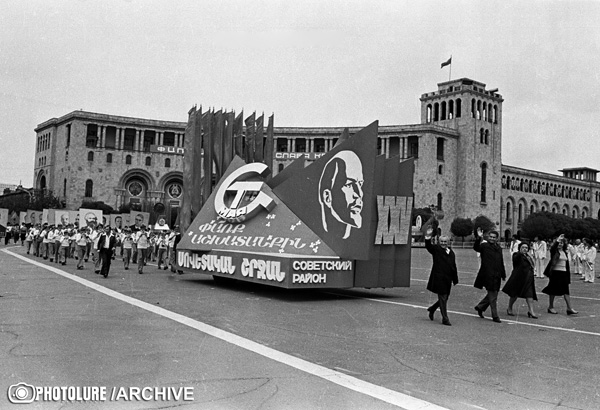I recall how the 50th anniversary of the Bolshevik coup was celebrated. Then the coup was called the October Great Socialist Revolution, with each word capitalized. Old people, the heroes of kitchen jokes, were standing on the roof of the “sacred corpse” welcoming the “happy” masses of people, the broadcaster was cheerfully “reporting” the achievements, for example, how much more cast iron has been produced compared to 1913. In 1967 everything already was quite funny, ridiculous, I would say even circus-like. Because as now, 50 years ago either, no one believed in any officially uttered word. At least in Armenia.
100 years ago everything was serious and fraught with blood also because there were believers. People were inspired, but not by the desire to create, or build something, but by the demolition, destruction, revenge passion, especially against the rich, educated people, and aristocrats. Those who, by exploiting the nethermost instincts of the masses, pushed people to destroy and burn, also largely believed that they were committing a good deed, contributing to the progress, the freedom and happiness of all mankind. And the killing of several thousand or a few dozen thousands of enemies for such a noble purpose, of course, was a “revolutionary necessity”, how else to deal with those who hinder the progress? There was no other way to get rid of the “cursed” Tsarism and the Bourgeoisie.
It is not only the peculiarity of this, but also any other revolution accompanied with violence. For me, frankly speaking, is all the same who those adventurers were that were pushing the people for bloodshed, whether Robespierre and Danton, or Lenin and Trotsky. When the “guillotine” is set off, first of all it annihilates the king, then his family, including underage children, and sooner or later, it reaches the revolutionaries themselves. If people are pushed to rob the wealth of the rich and divide among themselves, then sooner or later some people appear in the process of that sharing who are “more equal than equal ones”. When it is determined that any cook can rule the country, then the power goes to the hands of those who have an intellect of a cook.
Do revolutions ensure the progress of humanity? Yes, perhaps they do. But I must admit that I personally do not need that kind of progress.
Aram ABRAHAMYAN




















































